After being drafted 19th overall in 2004, Dorell Wright spent six seasons warming the bench for the Miami Heat. In 2010, he signed a deal with the Warriors and went on to score more points in that single season than he had in his first six combined.
After being selected 5th overall in 2005, Raymond Felton ran the point in Charlotte for five seasons, where he averaged 13 points and 7 assists. He inked a deal with the Knicks in 2010 and went on to average 17 points and 9 assists over 54 games before being traded to Denver. He’s since been traded again and had his worst NBA season to date.
After going undrafted in 2010, Jeremy Lin signed a two-year, partially-guaranteed deal to play for his hometown team, the Golden State Warriors. The Warriors had Stephen Curry and Monta Ellis at the guard spots, and Lin rarely got to remove him warmups. The Warriors waived him to free up cap space, as did the Houston Rockets, before he ended up with the New York Knicks. In a desperation move, former head coach Mike D’Antoni gave Lin an opportunity to play extended minutes on the third night of a back-to-back-to-back. I’m sure you’re already quite familiar with the story from that point on.
What does any of this have to do with Terrence Williams? Well, nothing, really… but the career paths of these players I’ve mentioned are all examples of the day-and-night difference that a change in scenery can make. It goes both ways. Some careers quickly hit their high point and then fizzle. Others develop slowly, or even appear to be over before an unforeseen opportunity presents itself. When it comes to individual success in the NBA, a player’s situation is nearly as important as his talent. As Charles Barkley will often point out, everyone in the NBA can play. Unfortunately, some never end up in a position to show it.
Since being selected 11th overall by the New Jersey Nets in 2009, Terrence Williams, a 6’6″ point-forward type with freakish athleticism, has made more noise on Twitter than he has on the basketball court. Although he’s had a few shining moments–including a 27-point, 13-rebound, 10-assist triple-double as a rookie–they’ve been pretty few and far between. Weaknesses in his defensive, jump-shooting, and off-ball abilities were evident right from the get-go, and a tendency to turn the ball over also presented itself. He compounded these problems by behaving rather immaturely, resulting in suspensions, D-League demotions, and an eventual trade from the New Jersey Nets just midway through his second NBA season.
The following excerpts from a December 2009 article seen on NJ.com give some insight into the early stages of Williams’ fall from favor with his first NBA team.
“Thorn agreed that Williams original tweet left little room for interpretation. In a reference to commissioner David Stern on draft night, it read, ‘How would it be if Mr. Stern called my name 10 min earlier #9 or 5 min later #12 hmmmmmmmmm to (sic) bad I can’t live off what ifs.’”
“Williams’ tweeting often reflects his mood, and lately, it’s been gloomy. He is in a horrendous shooting slump, he has never experienced losing before – certainly nothing on a 1-19 scale – and he finds himself getting pulled out of games quicker when he misses open shots, which is often.”
“And at shootaround Tuesday, Williams seemed more isolated than ever before. While his teammates were on the court, he was running the steps of the arena with assistant coach Doug Overton. One teammate was expressing his disappointment in Williams’ inability to act more professionally and stated that he is soliciting advice from the wrong people.”
“Williams had other dubious expressions of solidarity…including ‘up early to the gym to practice before practice, because NOW practice is my games.’”
All of that considered, many still felt that the Nets had given up on Williams far too soon, especially with Sasha Vujacic being the only tangible asset that was yielded (New Jersey also received two first-round picks, one of which was traded for MarShon Brooks). At the time of the trade the Rockets, who landed Williams, were being coached by the highly-respected Rick Adelman, and a lot of folks figured that this would be a good place for a young man like Terrence to grow up.
Turns out Adelman was already quite content with his rotation at the three spot. Williams didn’t even see the court until his 9th game as a Rocket, and only made 10 more brief appearances between January 5th and April 13th, the final day of the season. A case of a coach refusing to give the new guy a fair shake? Possibly… but given Terrence’s bad reputation (which he brought upon himself) there was no pressure on Adelman to get him into the action. So he never did.
After the 2010/11 season, Rick Adelman moved on to Minnesota and Kevin McHale was hired to coach the Rockets. I can’t remember the exact quote, nor can I find it, but McHale came in emphasizing that each and every Rocket would be working with a clean slate. Was a clean slate all Terrence Williams needed? Momentarily, it appeared that it was.
Williams had a strong showing (14 points, 9 rebounds on 7-13) in one of Houston’s preseason games and was granted over 26 minutes of burn in the regular season opener, which he used to score 13 points. He remained a part of the regular rotation through the first eight games of the season, but his presence wasn’t translating into victories. With the Rockets off to a slow 2-6 start, McHale elected to shake things up. Once again, Williams was out. Others, such as Courtney Lee, Chase Budinger, and 2011 first-rounder Chandler Parsons helped the Rockets run off 9 wins in 10 games as Terrence racked up DNPCDs. He didn’t handle the benching well and once again took to Twitter to voice his displeasure. On March 5th, he missed a practice. He wouldn’t tell the media why he wasn’t there, but he was quick to discuss a perceived double standard.
“It was the first time this year,” Williams said. “It’s life. Life goes on. It’s happened plenty of times already on this team. When it happens to somebody else, nothing changes. Me and a few other guys being at the end of the leash, you can’t really breathe wrong.”
The same old song from T-Will. Like the Nets did, the Rockets became weary of hearing it. After one more brief, garbage-time appearance, he was waived… less than three years after being made a lottery selection. Aside from two European players who never came over, Williams became the first top-30 pick from his draft to find himself without an NBA job. We may never know if this would serve as the wake-up call Terrence needed because he hasn’t been forced to reside in anyone’s doghouse ever since.
Five days after being cut loose, Williams signed a 10-day contract by the Sacramento Kings. Although Keith Smart’s Kings were in the midst of a youth movement and one of T-Will’s old friends from the Pacific Northwest was running the point, it still didn’t seem like an experiment destined for great success. Six different Kings have played rotation minutes at the wing spots this season. Coach Smart had this to say upon T-Will’s arrival: “Right now I’ve just got to get to know the guy. He’s not going to come in here right away and take minutes from our guys.”
This will not end well, I thought. See you in China, T-Will, I also thought.
Surprisingly, Williams not only found his way onto the floor, but made his presence felt very quickly. He had a rather routine debut–4 points in 7 minutes–but turned some heads in his second game, which just so happened to be against the same Houston team that had waived him just a few weeks before. The Kings went on to lose to the Rockets in overtime, but Williams proved to provide a nice boost off the bench by scoring 10 points in just 16 minutes. After three more solid showings against the Spurs, Jazz, and Nets, he was signed for the remainder of the season. Then, in his first opportunity to play an increased role, he delivered.
In Monday night’s match up with the T-Wolves, Williams was asked to fill in at the two spot for Marcus Thornton, who injured his thigh early on. Tyreke Evans took over the bulk of the scoring duties, finishing with a game-high 24 points, but Sacramento probably wouldn’t have hammered out a victory had T-Will not played an excellent all-around game. He posted his first double-double since his rookie season–12 points and 12 rebounds–and appeared extremely comfortable running alongside his new teammates.
Williams has continued to play well this week. He dropped a season-high 16 points on the Suns and scored 11 more against the Clippers last night. He’s also making plays at a rate of nearly 4 assists per game over his last six. While the Kings continue to lose the majority of their games, they’ve suddenly added an intriguing dynamic to their uptempo offense. With Isaiah Thomas, Terrence Williams, and Tyreke Evans… it’s almost like they’ve got three points guards running the break–two of which can finish like forwards. Williams has always struggled playing away from the ball in slow-it-down, half-court offenses, but the Kings have utilized him in a different way. He’s handling the ball and creating his own offense, as well as opportunities for his teammates. He no longer has to catch and shoot in order to get a look, so the career-40% shooter’s field goal percentage has skyrocketed to over 51%. For the first time in his career, his off-the-dribble style of attacking and his team’s system are compatible.
Terrence Williams is doing more than playing solid basketball for a bad team late in a lost season. He’s fitting in with the young players who will make up Sacramento’s core going forward. He’s stepping up to fill a void that Travis Outlaw, Donte Greene, and others have failed to fill. He checks into the game and maintains both the style and level of play that the starters establish, and at age 24 he still comes with a lot of that tantalizing potential that made him the 11th overall pick.
Assuming he can put together three more weeks good behavior and solid play, do the Kings sign Terrence Williams to a long-term contract this offseason? I don’t see why not. He doesn’t figure to be a costly option, and it certainly doesn’t look like Donte Greene is gonna be panning out any time soon. Greene will be a free agent anyway, and guys like John Salmons and Fransisco Garcia… they aren’t the future (even though they’re paid like they are).
Finally, Terrence Williams seems to have stumbled into an ideal situation. The Kings make sense for him and he makes sense for the Kings. I’m not sure I’d go as far as to call it a match made in heaven, but I’ll say it’s a match.
Sign with the Kings, Terrence Williams. Sign with the Kings, be on time for practice, and don’t tweet about anything that relates to your job. Do this and you should be fine. We’re all ready to jump right back onto your bandwagon.

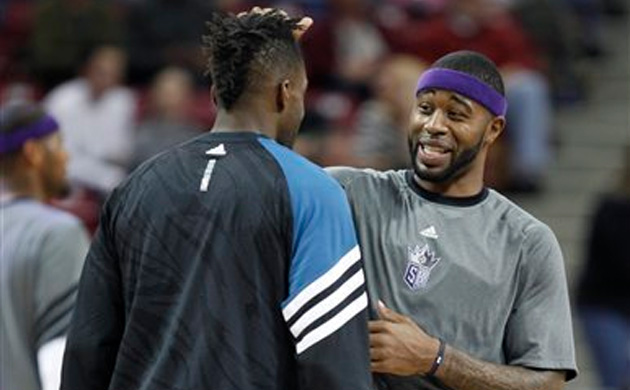

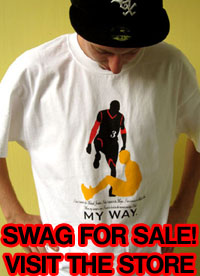






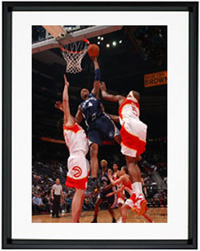
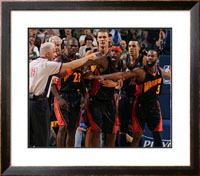
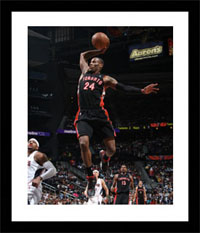

Great story and very well written. Enjoyed it!